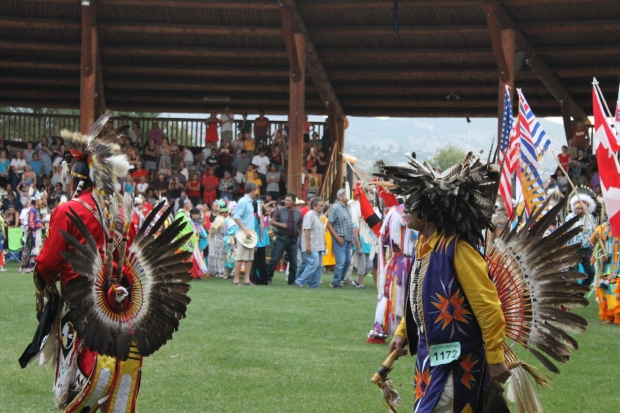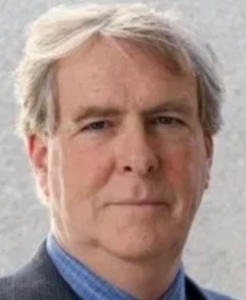RECONCILIATION – A buzzword with a battlefield of conflicting interpretations

Kamloops Powwow.
By GEOFFREY MOYSE, KC
Troy Media Contributor
If you Google the First Peoples Law website, you will find a one-minute explanation of “What is reconciliation” by Bruce McIvor.

Geoffrey Moyse.
Interestingly, the first line in the piece reads as follows:
“Reconciliation is Canada’s attempt to legitimize its ongoing colonization project.”
In my view, this one line shines a bright light on the difficulties that the use of the term “reconciliation” is creating in this country.
The term “reconciliation” now has as many meanings as there are people looking to define it, but one stark division appears over and over.
There are those who say reconciliation is all about “decolonizing” Canada – whatever that means.
There are others who believe that reconciliation can be achieved without denigrating the Canadian state but by following Canadian constitutional law, which is remarkably advanced in its protection of Aboriginal rights.
There seems to be little doubt that the present BC NDP government favours the decolonization approach to reconciliation as its ideological preference, but what does “decolonizing British Columbia” mean in practice?
According to Queen’s University:
Canada’s identity as a settler colonial state complicates the task of decolonization, since the original colonizers never left and since acts of colonization continue to the present … [including] non-Indigenous peoples’ refusal (either blatant or subtle) to give up land or acknowledge the land and treaty rights of Indigenous people.” [my emphasis]
Underlying these concepts is the notion that, fundamentally, colonization was both illegal and wholly evil in intent, and thus, the whole historical basis for a colonial country is entirely illegitimate.
The Queen’s University definition implies that justice will not be done until “the original colonizers leave” or “give up land” to Indigenous people or stop governing even themselves in “continuing acts of colonization.”
I understand that many people – a disproportionate number of them currently in academia and the Canadian education system – delight in proclaiming the illegitimacy of the Canadian state.
Loudly asserting that Canada is illicit obviously leads to the conclusion that those non-Indigenous people who live in Canada are all here illegitimately.
Those who are pushing this “woke” view of Canada and who also happen to live in the Canadian state themselves seem to quench their apparently huge personal guilt over their unfortunate presence here by constantly apologizing in some manner or other to Indigenous people.
Somehow, that seems to make them feel that their own residency can be morally and ethically rationalized, as though saying “sorry” multiple times to Indigenous residents and slavishly repeating land acknowledgements gives them a kind of subservient legitimacy for being “trespassers.”
These are the kinds of people who refuse to celebrate Canada Day or British Columbia Day.
On the other side of the “reconciliation equation,” we have the view that Canada is a legitimate state with an enviable legal system that has since 1982 been seeking to balance the pre-existing rights of Indigenous people with the imposed sovereignty of the Crown under section 35 of the Canadian Constitution Act, 1982.
The addition of section 35 has resulted in a plethora of legal cases that have upheld the Aboriginal rights and the Aboriginal titles of Canada’s first peoples and placed real limitations on the ability of Canadian governments to undermine those vital historical and present-day rights.
This is the other basis for “reconciliation” in Canada, and I suspect a very large majority of Canadians would endorse it ahead of whatever “decolonization” is supposed to accomplish.
Perhaps before governments like the BC NDP impose their views of “reconciliation by decolonization” on British Columbians, they should find a way to determine which reconciliation option is actually supported by the majority of the province’s residents.
One way to do that would be for all political parties to come clean about their preferred approach to reconciliation in a wholly transparent manner before the Oct. 19, 2024, election.
All of them should have to request a clear mandate from the public on the issue of reconciliation based on full and complete disclosure of what their approach to this complex issue will be over the next four years and, most importantly, why.
I look forward to seeing the present BC government finally being transparent about their ongoing “decolonization plan” for this province and how it will supposedly advance reconciliation, as opposed to continuing the divisiveness we have seen to date.
Having said that, I am not holding my breath …
Geoffrey S. Moyse KC is a retired senior lawyer who served as legal counsel to the Province of BC, advising six successive governments on Aboriginal law over 30 years.

Mr. Moyse:
With respect, why haven’t you referred to the Truth and Reconciliation Commission’s Calls to Action regarding reconciliation (numbers 45 to 94)?
https://www.rcaanc-cirnac.gc.ca/eng/1524494530110/1557511412801
These Calls to Action are foundational to, and will inform how, all of us should approach and interpret reconciliation.
In my opinion, it is very pejorative for you to make reference to a “woke” view of Canada regarding those who understand reconciliation differently than you.
LikeLike